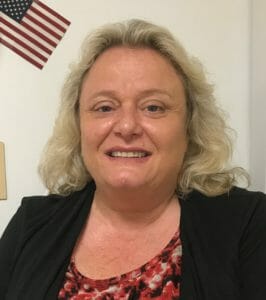
Amid the ashes of the COVID-19 pandemic came the realization that there were more casualties from this plague than we thought.
It was reported that 25% of COVID-19 deaths were long-term care residents and staff. But an event that’s receiving less coverage is the mass exodus of long-term care employees, especially nurses. Ninety-nine percent of nursing homes in the United States are now reporting staffing shortages, according to the American Medical Association.
Who are the 1%, I wonder? What are they doing right? What are the other 99% doing wrong?
As a result of the staffing crunch and the pending changes at the Centers for Medicare & Medicaid Services, it has been particularly difficult for clinical reimbursement departments. Never before have I seen so many MDS coordinator/clinical reimbursement/care planner positions available.
Many MDS coordinators have been pulled to the floor to provide care or test residents and staff. Many more have retired or resigned, leaving empty chairs and piles of uncompleted MDS assessments and care plans. Ultimately, the Quality Measures will fall, the survey tags will be plentiful, and reimbursement rate reductions are a real possibility.
Many of those who fled during this mass exodus from MDS Land gave a multitude of reasons for their departures on social media. It was too much for one person to do. No vacations. No backup assistance. The desire to work remotely.
The solution? Remote clinical reimbursement services have popped up, offering a plethora of services, including MDS completion, Quality Measure reviews, care planning, case management, audits and more — the list is growing.
The upside? A remote employee requires no office, no electricity, and in this field, little to no orientation. They do not collect benefits or require unemployment insurance. Remote MDS services are typically less expensive than agency or interim services. Depending on the company you select, you can use them as little or as much as you want, as some offer short and long-term contracts. They typically work from home and have little to no distractions while figuring out your optimal reimbursement rate or seeking out those coveted NTAs.
So while no remote service can take the place of an MDS coordinator in the facility, very few MDS coordinators want the challenge of a building whose RAI assessments are months behind. Especially with the additional duties that are now being assigned to the clinical reimbursement department. Annual survey could be a nightmare with multiple tags for late or missing assessments, incomplete or inaccurate care plans, missing baselines and more.
It is only one solution to an ever-growing pile of problems facing the LTC industry, but it’s a start. And if major companies like Apple, Google and Facebook found a way to make remote roles work, I am certain long-term care will find a way as well.
Michele Lynch, RN RAC-CT DNS-CT, has been a registered nurse for nearly 30 years with most of that time spent in long-term care, including time as a floor nurse, supervisor, and MDS coordinator. She currently works for a faith-based facility in St. Petersburg, Florida, in addition to remote roles with Citadel and Remote Solutions CRP LLC.
The opinions expressed in McKnight’s Long-Term Care News guest submissions are the author’s and are not necessarily those of McKnight’s Long-Term Care News or its editors.




